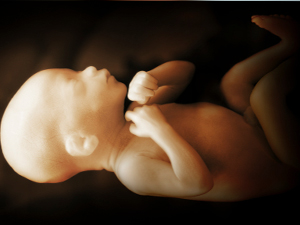Sins of the Father: Abortion, Birth Control, and the ACLU
 As someone with the highly unusual task of researching old, declassified Soviet and Communist Party USA archives, I often get quizzical looks as to why certain things from the distant past still matter.
As someone with the highly unusual task of researching old, declassified Soviet and Communist Party USA archives, I often get quizzical looks as to why certain things from the distant past still matter.
Well, it’s indeed true that past is often prologue. And it’s striking to see how something in communist archives from, say, the 1920s, pertains to America right now.
That certainly seems the case with what I’ve found on the American Civil Liberties Union, whether challenging Christmas carols in public schools seven decades ago, or, currently, trying to compel Catholic hospitals to do abortions, or denouncing the Catholic bishops for opposing birth-control funding in “healthcare” legislation.
How ironic that I would find seeds of these things in communist archives, or, even more directly, in the pro-communist or pro-Soviet writings of the ACLU’s founders.
The ACLU’s early atheism is no surprise; its founders’ sympathies toward Bolshevism and the Soviet state are not disconnected from that atheism. Yet, most interesting, and unexpected, is how the ACLU’s founders’ views on the Leninist-Stalinist state’s advancement of abortion and birth control are connected—symbolically, at the least—to the organization’s advancement of abortion and birth control today.
Consider the founder of the ACLU, Roger Baldwin:
To get a sense of where Baldwin stood on all this, the best source is his 1928 book, Liberty Under the Soviets. The title was no joke. This champion of American “liberties,” like many ACLU founders, was fascinated with the Leninist-Stalinist state, having travelled there with other progressives in the hope that they had found the new world.
As to Baldwin and abortion and birth control, it isn’t easy to pin him down at the time of the Soviet legalization in the early 1920s. That said, Baldwin’s book comes close. Baldwin had to tread lightly on abortion in particular, as did birth-control feminists like racial-eugenicist Margaret Sanger, Planned Parenthood founder. Baldwin understood that only the most vulgar Americans considered legalizing abortion.
So, what did Baldwin say about these things in Liberty Under the Soviets? He hailed the “significant” “new freedom of women” in Soviet Russia. On page 118, he came nearer to endorsing Soviet abortion and birth-control policy:
Birth control is legal throughout Russia, but not encouraged as an official policy. Abortions are legal also, but may be performed legally only in hospitals or by qualified physicians upon permits issued by local commissions to whom women apply. This, however, does not prevent illegal abortions by practitioners to whom women may go when refused permission by the commission. Birth control not being generally understood and abortions being controlled, women are not yet freed from unwilling child-bearing, though the regime is extending its efforts to aid them.
Such are the freedoms of women under the Soviets today, on paper and in practice. On paper they are an advance over the status of women elsewhere in the world, pushing to their logical ends what are only tendencies in other lands. In practice they are a great advance over the very limited position of women before the Revolution.
Here, Baldwin seemed to support the Soviet legalization of abortion and birth control, and generally freeing women from the shackles of “unwilling child-bearing.” This he viewed as an advance, if not “great advance.”
Where did Soviet Russia go from here? The rest of the story is hellacious.
Within a decade, there were millions of abortions. It got so bad that Joseph Stalin, mass-murdering tyrant, was horrified, and actually temporarily banned abortion, given that entire future generations were being wiped out in the womb. Re-legalization took place under Nikita Khrushchev in the mid-1950s. By the 1970s, there was a staggering seven to eight million abortions per year in the USSR. The very worst year for abortion in America, post-Roe, pales to the average year in the Soviet Union. To the extent that Roger Baldwin supported that legalization, here was the bitter fruit.
To that end, the ACLU is a group with some rotten roots, and I believe today, a century later, we are reaping the dark harvest in America. When the ACLU today challenges the liberty of Catholic hospitals to refuse to do abortions — obscene as that challenge is — or blasts bishops for opposing taxpayer-funded contraception, it isn’t a surprise to those of us familiar with the sins of the father.
[This article first appeared in the National Catholic Register. © 2011 Paul Kengor]

